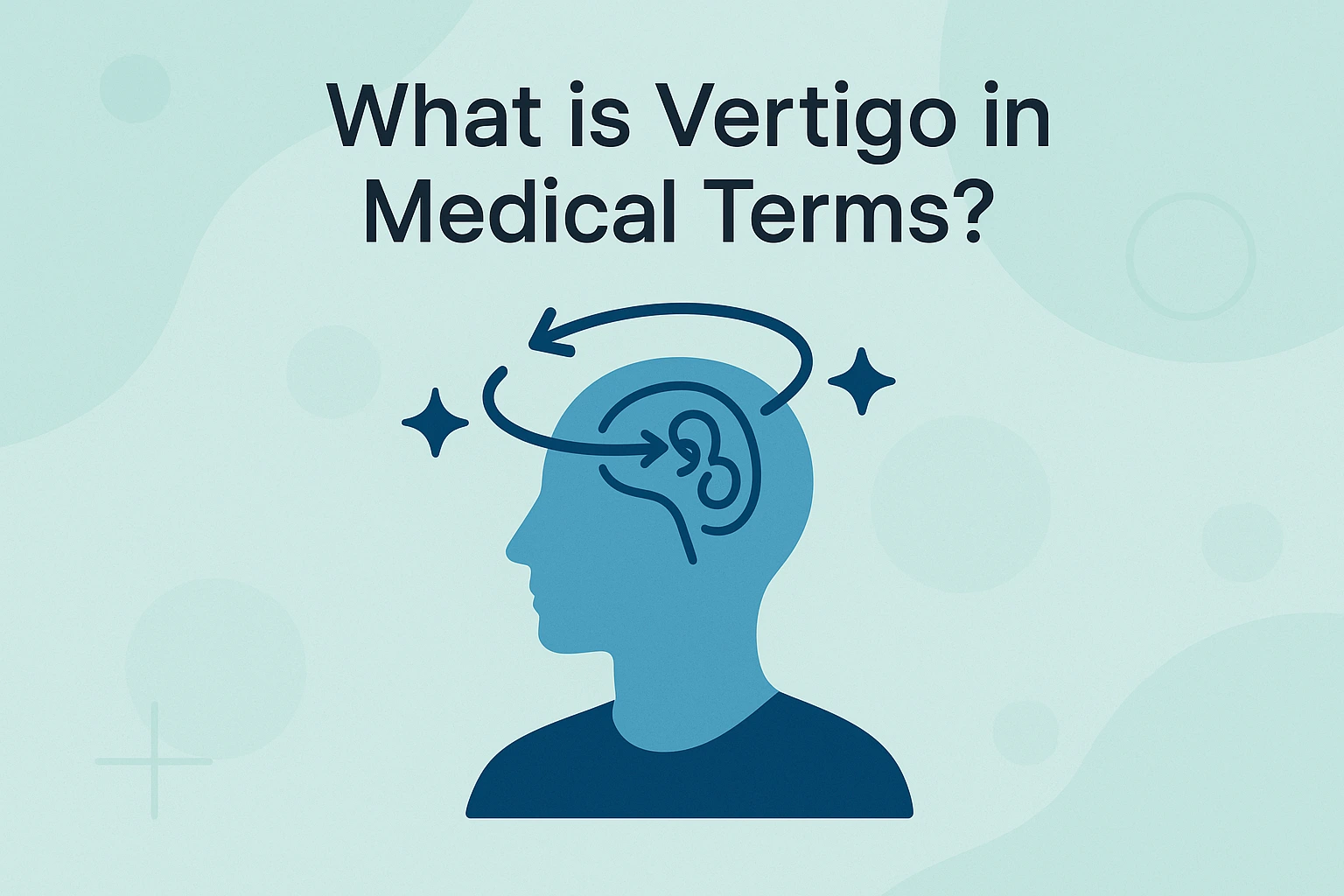Vertigo is a medical condition characterized by the sensation that you or your surroundings are spinning or moving when they are actually still. Unlike dizziness, which refers to a general feeling of unsteadiness or light-headedness, vertigo specifically involves a spinning sensation that can be triggered by changes in head position or certain movements. This condition is often caused by issues within the inner ear or vestibular system, which controls balance.
The two most common types of vertigo are:
- Benign Paroxysmal Positional Vertigo (BPPV): A condition where small crystals in the inner ear become dislodged, affecting balance.
- Meniere’s Disease: A disorder of the inner ear characterized by vertigo, ringing in the ears (tinnitus), and hearing loss.
Other causes of vertigo may include vestibular neuritis, labyrinthitis, migraines, or more serious conditions like stroke or brain tumors.
For most people, vertigo is temporary and can be managed with treatment. However, if vertigo is frequent or accompanied by other symptoms like severe headache, double vision, or difficulty speaking, it’s important to seek medical attention immediately, as these could be signs of a more serious underlying condition.

Symptoms of Vertigo
Symptoms of vertigo include unsettling sensations that can disrupt daily activities.
- Spinning or swaying sensation
- Loss of balance or unsteadiness
- Nausea or vomiting
- Tinnitus or ringing in the ears
- Visual disturbances
- Feeling faint or lightheaded
Causes of Vertigo
Common causes of vertigo include various mechanisms affecting the inner ear. These can also involve reduced blood flow or other factors.
- Benign paroxysmal positional vertigo
- Meniere’s disease
- Vestibular neuritis
- Head injuries
- Certain medications
- Dehydration or heat-related illnesses
When to See a Doctor Vertigo?
Seek medical advice for vertigo if you experience severe symptoms. Symptoms such as fainting, chest pain, or confusion can indicate a serious condition. Immediate attention may be necessary.
Related Terms of Vertigo
FAQs for Vertigo
- What is the difference between dizziness and vertigo?
- Dizziness is a general term for various sensations, while vertigo specifically refers to the feeling of spinning.
- How does presyncope differ from dizziness?
- Presyncope is a feeling of lightheadedness or near-fainting, distinct from the spinning sensation of vertigo.
- When should I go to the ER for vertigo?
- Seek emergency care if you experience severe symptoms like chest pain, fainting, or confusion.
- Can heat and dehydration cause vertigo?
- Yes, conditions like heat and dehydration, especially in hot climates, can contribute to feelings of vertigo.
- How can I reduce my risk of vertigo?
- Staying hydrated, avoiding sudden movements, and managing stress may help reduce the risk of vertigo.
